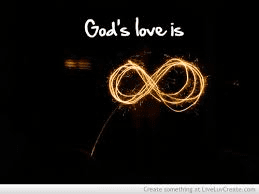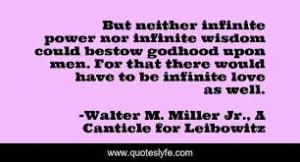Part 4 on David Tracy’s Fragments: The Existential Situation of Our Time, Chapter Two Continued

Modern Christians easily think of God as infinite – Infinite power, infinite love, limitless patient endurance. But it wasn’t always this way. Christianity grew from Jewish roots but quickly absorbed Greek ways of understanding their experience of God through Jesus. And for centuries before and after Jesus, Greek philosophers wanted nothing to do with the concept of infinity. But Tracy goes so far as to say that the idea of the infinite “informs all the names for the ultimate invisible.” (p. 46)
How did infinity become a typical way of thinking about God? In this post I follow Tracy’s path through the Greek distaste for infinity to the Roman philosopher Plotinus, who did learn to name Ultimate Reality the Infinite. I end with some questions and cautions about a category of infinity that perhaps comes most easily to modern minds—infinite power.
The Greek principle of form
Ancient Greek philosophers did not like infinity. Understanding comes by applying words to reality; and we understand words by definitions. The act of defining—imposing or finding limits—is central to understanding. For the Greeks, at the end of every process of understanding something, one arrives at the form of the thing. A form has definite contours, which don’t have to be spatial. For instance, virtue, one of Socrates’s favorite topics, has definite form. It is a mean between two extremes. A courageous person steers a mid-course between recklessness and timidity.
Aristotle didn’t reject all infinities. He believed the world had always existed, so he had to deal with an infinity of days, if nothing else. He called this a potential infinity. There are an infinite number of days, but not all of them exist, or are actual, at once. For Aristotle an actual infinity is impossible. (p. 47-48) Aristotle’s “god,” which he called Mind, or Nous in Greek, is not infinite but the ultimate circle. It is thought thinking only itself. The world that we see exists by imitating this circular movement, first the stars and planets in their various circles, then the sublunary cycles of growth and decay, war and peace, etc. All of these circles obey the form principle, circling back on themselves, never reaching infinity.
Plotinus lived in the third century of the Common Era (CE), when Christians were struggling with their new understanding of God. He was perhaps the first to violate this form principle. (p. 48) Plotinus focused more intently than anyone before on the thought that the Ultimate Reality had to be one. Any duality or mixture would be imperfection. As I understand it, that meant that Ultimate Reality could not have a form because that would be duality—the reality and its form. That opened up a way to think of the One as infinite.
The infinite, overflowing One/Good
Plotinus was not a Christian. He did not believe in a personal god as ultimate reality. But he did believe that the One was good. This One/Good, for lack of a better expression in imperfect human language, overflows like a fountain, naturally. It diffuses itself into the world’s various levels of reality. The highest of these is Aristotle’s Mind thinking itself. Then, in hierarchical order, come Soul, Cosmos, and Matter. (p. 52) The One/Good is the generous Source, acting not like the Christian God, freely and out of love, but naturally, like that fountain.
This Source is also the goal of all reality, so besides being like a fountain, it is also like a magnet. Its pull aids our feeble efforts to return to the One, like grace that perfects nature, Tracy says. (p. 53) Aristotle’s “god” possessed a serenity that no concern outside itself could interrupt. Plotinus’ One is more Christian in that respect. Still it acts only naturally, not with the freedom of love.
Tracy dwells on a third Plotinus metaphor. Suppose, with great effort aided by the magnetic attraction of the One, you finally arrive at the second highest level of reality, the Aristotelian Mind. You can’t go any further by your own effort. You can only wait, as if by the seashore to see if anything more will happen. Perhaps – but there’s no guarantee –
… the tide may rise and transport the soul back to its true home by means of an unexpected wave, an experience of the One/Good. (p. 53)
Plotinus’ biographer, Porphyry, says that while he studied with Plotinus, the great philosopher “was ‘taken up’ to a philosophical, mystical experience of the One/Good three times.” That was more than enough, Porphyry says, “to sustain Plotinus through the rest of his philosophical-spiritual way of life.” (p. 53)
Infinite power – Are we safe applying this concept to God?
America has a taste for power. Whether in superpower fantasy or international relations or our seriously misguided fantasies about the power of science, we crave more and more of it. Can we extrapolate from our experiences of real or imagined power to God’s infinite power? My guess is that would be a mistake.
In the Bible it’s easy to find descriptions of God’s overwhelming power. When my childhood parish was deciding whether to repair the bells in the clock tower, I researched the occurrences of “bell” in the Bible. I found only two. The interesting one says there were bells alternating with pomegranates on the hem of Aaron’s liturgical robe. He had to wear it when approaching the Lord’s Presence. The tinkling of the bells would alert the Lord to Aaron’s arrival, “else he will die.” (Exodus 28:33-35) The Lord has to turn down the power radiating from the Presence, or turn it in another direction, to keep Aaron safe.
Humans are not supposed to be able to see God and live. God allowed Moses to see only God’s backside, not the full glory of the divine face. (Exodus 33:18-20) God’s power defeats all the gods of the Egyptians in the story of the Exodus. God plays with the mighty sea monster and controls all the forces of nature. What’s not to admire about this powerful God?
In a surprising turn, though, God chooses a less than powerful way to appear to the prophet Elijah. Elijah was fleeing for his life from Jezebel. He could use a little display of God’s power. But God comes to him not in the wind that breaks rocks or the earthquake or the raging fire but in a “tiny whispering sound.” (1 Kings 19:12)
God’s weakness
The New Testament letter writer Paul says, “The weakness of God is stronger than human strength.” (1 Cor 1:25) I first imagined Paul meant that God’s weakest part, say God’s little finger, was stronger than all the power that humans could muster. But what if Paul really meant weakness – like the weakness of a man dying on a cross? Or the weakness of the Christians whom Paul at one time persecuted? Or Paul’s own weakness?
Weakness can do things that power can’t. You don’t change someone’s mind or heart by overpowering him or her. The things God wants most God’s power can’t accomplish. In Jesus God tried a different approach.
Is the creation of the world an act of infinite power? There’s an infinite distance between nothing and something, I was taught once. But is there? Between 0 and 100 the distance is exactly 100. I was taught it takes infinite power to make something from nothing. But creatio ex nihilo doesn’t make sense literally. God didn’t take nothing and change it into something. God started with the fullness of being, God’s own self. Looked at that way, the question is, How could there be a place for anything besides God? Taking Elijah and the bells seriously, but not literally, the question becomes, How could there be a safe place for anything besides God?
God may have infinite power, but I’m pretty sure that’s not God’s favorite quality. God would much rather have a world. I tell my grandchildren God moved over to make room for the world. Perhaps that safe space God left open is within God’s self. Panentheism sounds like a good technical word for it.
Creation doesn’t seem to me like an act of infinite power but more like letting something be. As the first chapter of the first book of the Bible says, “Let there be…” a world.
Other infinities in God
The human experience of power does not help me understand God’s infinity. I can imagine having more and more power, but it’s always a definite quantity. Scientists have units for measuring power.
My preferred ways into thinking about infinity are experiences that are not measurable. Love, joy, indescribable suffering and the empathetic response to suffering, anxiety, loyalty and the martyr’s devotion to a cause, the experience of beauty in a work of art or nature. Tracy discusses some of these in various sections of Fragments. He uses the word “excess” to describe them. Going back to the Greeks, I don’t know how Aristotle would find a middle between two extremes for any of them. They’re all extreme, without measure, pointers to infinity.
There’s a long entry under “infinite/infinity” in Tracy’s Index of Subjects, so the topic of infinity is bound to come up again.
Image credit: Holy Family Irving












